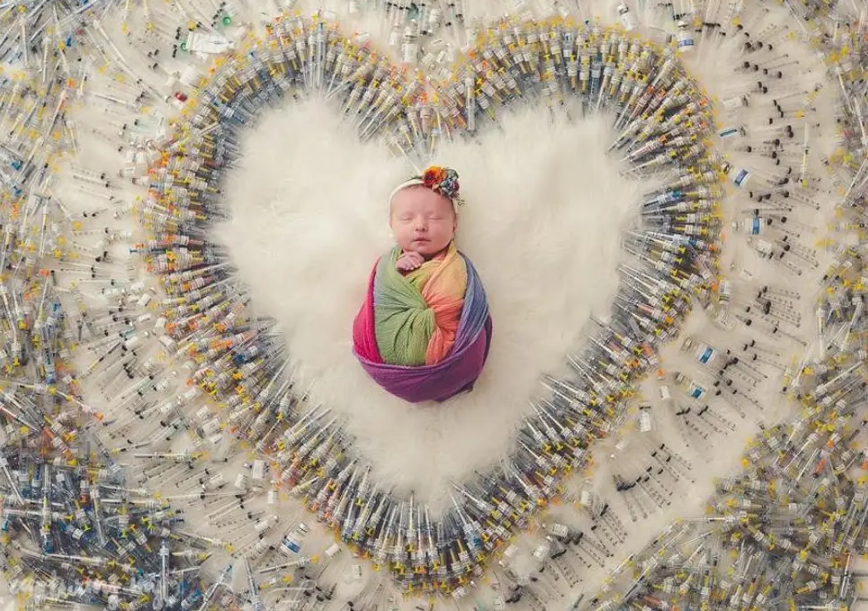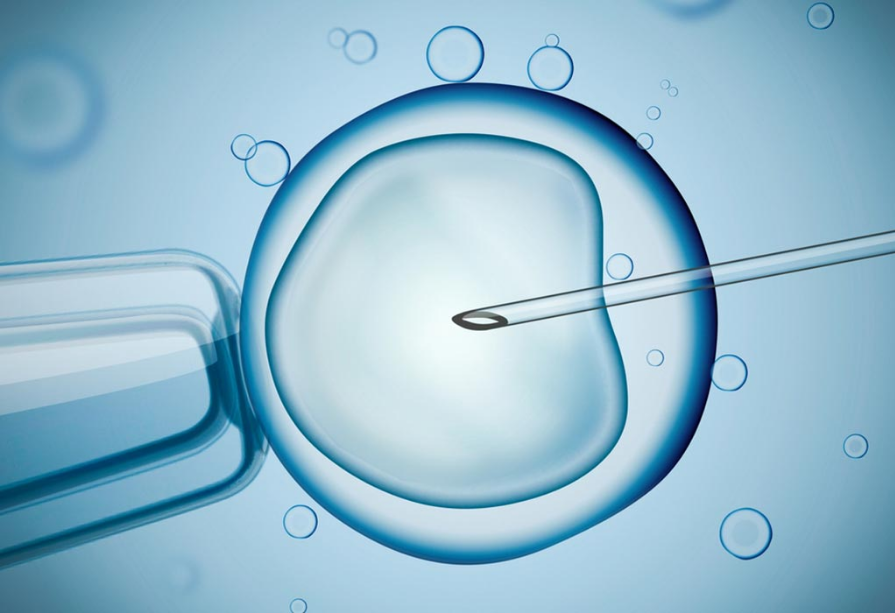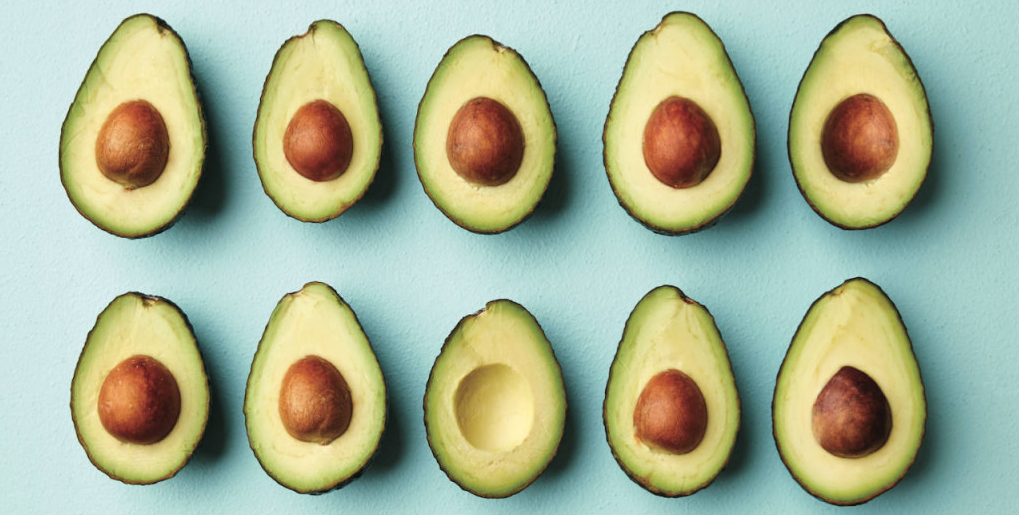
Bruises, bills and a broken heart: this is all I had to show for my second failed IVF cycle last September. The first one, overseen by the NHS instead of a private clinic, was in February 2018 and followed an early miscarriage in late 2015. Truth be told, I never thought I’d share such a personal story so publicly; beyond our immediate families and close friends, very few people are aware of this aspect of our lives. So why lift the lid now?
An Indian friend told me that during a family dinner, her cousin’s non-Indian wife mentioned that she’d be unavailable for the next 2 months because she was about to start IVF. Silence fell around the table; no-one knew how to respond. Later, the wife apologised for having inadvertently offended anyone. When I heard this, I decided to describe my experience to tackle the stigma of infertility, particularly among Indians. By openly discussing my feelings, I hope women undergoing this upheaval feel less alone and abnormal, like I did when reading about, listening to and talking with other women in the same unsteady boat en route to uncertainty. Having a strong support network helps, but only those suffering with infertility can truly understand your constant internal anguish.
My thoughts often return to how I ended up here. Like many young girls, I assumed I’d have my first child a few years after getting married. As it turned out, I lived with my in-laws for the first 2 years, so after we moved out, we wanted to enjoy our own space for a while. Many years passed, during which the pressure to procreate was such that it made me want to do so even less. (Being advised to get on with it before your womb shrivels up by a relative on Christmas Day tends to have that effect.) I also worried about losing my independence and identity by becoming a mother.
Then I fell pregnant. My period, usually as regular as clockwork, was 2 weeks late, which had gone unnoticed in the run up to Christmas. When I saw the BFP (Big Fat Positive) on Christmas Day, I was taken aback by how ecstatic I felt; I’d always expected to feel resentment, disappointment or fear. I ran into the bedroom to share the good news with a stunned-but-happy Neil. We snuggled under the duvet as we enthusiastically made tentative plans for our future family.
But it wasn’t meant to be. In the first week of January 2016, Barnet Hospital confirmed that I’d miscarried. Apparently, 1 in 4 pregnancies end in miscarriage, a statistic which was as comforting as a limp hug. On the bus home, a mother was lovingly talking to her toddler about what they could see. Tears rolled down my cheeks as I watched the tender scene, my heart growing heavier with sadness. For the next few weeks, I’d often burst into tears, sometimes when babies’ photos popped up on my Facebook feed, or whenever the sense of hopelessness became too overwhelming. Putting my feelings into words was difficult, so I’d cuddle up to Neil on the couch and simply cry, soaking his shirt with my angry tears. Getting a glimpse of something I thought I didn’t want, discovering that I did actually want it and then not being able to have it was a tough lesson to learn.

We embarked our first IVF cycle in early 2017. Tests gave Neil the all clear and revealed that my egg count is lower than average, making it more challenging, but not impossible, to fall pregnant. The process suddenly became very real when I unpacked the large box of meds for the month at home: seeing the various needles, vials and suppositories laid out on the floor hit me hard. Why were we putting ourselves through this? Was it worth it? Neil found me sobbing in the spare room, ironically in child’s pose, and eventually calmed me down.
He administered the first injection because I was too scared to do so. But it’s amazing how quickly you adapt to the new norm; before long, I was a dab hand at injecting myself daily, making sure I took the right drugs at the right times. The pre-made injections were so much easier; all I had to do was remove the cap and air bubbles then insert. Looking back, I didn’t appreciate the simplicity of this schedule: I had a handful of tests and internal scans, but was largely left to my own devices.
The 2-week wait after the egg transfer was excruciatingly long. Luckily, we had a long weekend in Venice booked to distract us. Which was just as well, because after I saw the BFN (Big Fat Negative), we made a beeline for a local wine shop to purchase Prosecco to drown our sorrows. The more I drank, the less I felt the crushing weight of my shattered dreams. It was always a long shot, but I’d dared to hope and felt like a fool for having had faith.
Since I didn’t have any spare eggs to freeze, I didn’t qualify for a second free cycle on the NHS. We weighed up our options and pinned our hopes on the private path. Even though I’d been briefed on the particularly intensive process at our chosen clinic, I still struggled to cope with the daily blood tests and scans at 7:30am, not knowing which drugs I’d be taking that day until my blood had been analysed or whether I’d need to return for a new prescription or an IV drip to rebalance my hormones. Emotions got the better of me in the first week, culminating in me breaking down in the drop-in clinic. By week 2, I’d somehow accepted my fate and went through the motions in a desensitised state; I’d put my feelings on pause. Getting up at 5am to inject Cetrotide then Clexane, followed by Fostimon and/or Merional in the afternoon, plus aspirin, Clomid, Dexamethasone, Sildenafil and Viagra pills quickly became routine.
It was all fine until the progesterone injections came along: a thicker, 2-inch needle to be inserted into my backside at 9pm every day. My courage failed me at this point, so Neil had to take over. After warming up the injection site and massaging it, I’d lie on my front and cry into my pillow as the needle pierced my skin and slid into my muscle. The worst part wasn’t the initial pain; the bruises were so widespread that sitting down hurt much more. This phase coincided with our 10-year wedding anniversary, which we celebrated in Brighton instead of a paradisiacal location like Bali or Mauritius. While I was grateful that we were able to get away for a couple of days, I couldn’t help but feel frustrated that our major milestone was overshadowed by this invasive treatment.
Again, it was all for nothing. I was about to order a hot chocolate from SAID (the only place which comes close to Angelina’s lifechanging version in Paris) when I got the call. Being given the bad news over the phone was worse than taking a test at home, and my mind wandered as the nurse said she’d be in touch about a follow-up appointment. They may not call it a post-mortem, but it’s a very apt term given that a part of you dies every time a cycle fails and you grieve for what could’ve been.
After a tear-filled lunch in Soho and my first G&T in months, we headed home to hide away. Wine and TV were our companions that day as we avoided telling hopeful family and friends that this was the end of the road. It’d be another 2 days before I could face speaking to them over the phone, unable to handle their disappointment and pity on top of my own. Having invested so much time, effort and money into the process only for it to fail meant that I crashed much harder this time around.

I took a day off then went back to work, hoping that burying myself in projects would help me to move on. However, unhappiness took hold of me until I felt like I was being strangled by its heavy hands. Needing to escape its clutches, I went on a wellness retreat in southern Spain. As soon as I saw the faint outline of Africa from the villa, breathed in the fresh coastal air and feasted my eyes on the shimmering sea and lush greenery all around, I felt a bit more like myself than I had done in months. It was like I’d been underwater for months and had finally come up for air.
For 4 days, we meditated, worked out, swam, ate and slept in this beautiful haven. As a surprise, our host had booked an aerial yoga class at a beachside venue for us. In her introduction, our instructor explained that certain poses could unlock our emotions, which I didn’t fully believe until I found myself face down on a mat, knees tucked under me, crying uncontrollably. The pose which undid me involved lying on a fabric swing on your stomach, gradually lifting your legs up as your body leans forward until your hands reach the floor. Each time I attempted the move, the fabric pressed harder and harder on my stomach, the empty space which should’ve been occupied by my non-existent baby. It reminded me of all my failures: failing to listen when people told me that time wasn’t on my side; repeatedly failing to conceive; failing as a woman and a wife.
Releasing those emotions pushed back some of the black clouds hanging over my head. Rather than feeling awkward for exposing my vulnerability in front of strangers, I felt liberated because they had no backstory. I had a blank slate: there was no prejudice, pity or platitude. It was therefore easier to open up to someone who just let you talk in your own time, using your own words, or just sit in silence while watching the sun rise and set. Unlike in the US, talking about therapy is still somewhat taboo in the UK, but I love having an unbiased voice which can unearth memories and feelings that have been long suppressed and help you come to terms with them.
It’s been 6 months since the last BFN. I’m OK most days, but I sometimes feel numb, empty, regretful, angry and confused. Oh, and there’s that sharp stab of jealousy whenever I hear that someone is pregnant, be it a friend, relative or Meghan Markle. A cousin sent me her 3-month scan the week after my BFN while someone told us of their abortion plans on the day of our first IVF consultation; life is a bitch sometimes.
If my hormones play ball, our third cycle will hopefully start in April. My body has had time to recover from the cocktail of cow’s milk (2 litres) and drugs that I had to consume daily, and I’ve been enjoying alcohol, raw fish and meat and fermented foods again. Going back to the gym was also a pleasure after being banned from exercising for a month. Seeking solace in good food during treatment led to some weight gain, which only strengthened my pre-existing hatred towards my body. It became a battleground, where each injection staked its territory until the last parcel of land was claimed and my body no longer belonged to me. I’ve been advised to be kind to myself, which means learning to dampen that inner voice which cruelly criticizes my every thought and action. Maybe I should give it a repulsive name to make it less powerful.
Writing has always come more naturally to me than speaking, so typing out my thoughts has been therapeutic. I’ve found that the more I talk about my experiences, the more others have been willing to share theirs, both online and offline. And having the likes of Michelle Obama, Gabrielle Union, Jessie J, Lena Dunham, Courteney Cox and Emma Bunton discuss their experiences are big steps towards making infertility a mainstream conversation. For those who aren’t ready or don’t want to divulge their feelings, I’ve listed some of the TTC (Trying To Conceive) Instagram accounts and podcasts I follow, and my DMs are open. Please don’t suffer in silence.
This is Alice Rose (TTC Life Raft Podcast)
Big Fat Negative (BFN Podcast )
From The Other Chair
Let’s Talk Infertility (posts anonymous messages)
Arden M Cartrette
IVF Babble (online fertility mag)
Spotlight on Chefs series (if you need to read something light after this)
Our IVF Update: Third Time Unlucky (2020 update)
UCL Fertility Study (online questionnaire)
PIN FOR LATER


As an Indian woman. As someone who has also lost a baby and who dies a little inside when BFN shows up, I really admire you for writing such an honest post. I absolutely HATE that once people stop asking ‘when are you getting married’ they get straight on to ‘when are you having a baby’ it’s such a ridiculous, unnecessary question as having a baby is not something anyone can control! I think thats one of the hardest things about wanting a baby, knowing that its a part of life that even if you do everything right… it won’t happen until its meant to be. Everyones journey is different whether it be years of ivf and then it happens naturally, to adopting or even to a surprise addition later on in life, I’ve seen people go through all of the above. I do hope you feel better after writing this and thank you for sharing your story. From the bottom of my heart Seetal I pray that you are gifted a baby some day soon xxxxxx
I’m so sorry to hear about your loss and BFNs, Asma – it’s such a wretched feeling of sadness, bitterness, anger and disappointment. I spent many years getting mad at people for asking me about when we were having kids, saying that we weren’t getting any younger, our work would wait, etc. I found it so intrusive, and that was way before we had any idea of how hard the process would be for us. Like you say, everyone has their struggles, some of which end happily. I do feel better after sharing these deeply personal thoughts and experiences and am comforting by knowing that I’m not alone. I truly hope that your dreams also come true xxx
This post is a very emotional but real account Seetal. Thankyou so much for sharing your frank experience of IVF. I’m truly glad that you wrote this because I am sure this will resonate with many couples out there and will help them in some way. Wishing you both all the best with cycle 3. xxxx
It was a tough decision to make, but once I started writing, the words just flowed out. Thanks for your support as well – it means the world to me. I hope that the post comforts anyone who needs it, whether they’re starting out, or have gone though several cycles, or struggling with infertility in any way. Fingers crossed for the next one xxx
Gosh, Seetal – what a journey you’ve been on. And what tough moments there too. So sorry to hear, and also really appreciate your sharing your experiences here. It couldn’t have been easy to write, but I’m sure there’ll be many out there who will feel really supported by your words. Sending you and Neil all my love, and really hope things work out well. X
It has been a rollercoaster for sure. Thanks for your kind words and constant support, Aaron – I can’t tell you how much it means to me. The writing part was surprisingly OK, but I started feeling really emotional when I read it back for the first time and then it hit home. I truly hope that it helps others going through the same ordeal, and also give an insight into the intensive process. Thanks again x
Seetal what a beautiful post and so glad you did write about it and speak up cause many are in the same boat. Life is bitter sweet and talking about it is a big brave step. All the very best for the 3rd treatment. I have everything crossed for you both xx
Thank you, Neha – it has taken me a few months to process the last cycle and everything that it involved then finally felt ready to talk about it to help others and to help people understand what the experience is truly like. Really hoping that third time’s a charm for the next round xx
Seetal, I am utterly moved by this. Once again, in a world of curated Instagram fluff, your willingness to share what everyone else buries shows an exceptional character and an exceptional beauty. I have no experience of exactly what you describe, but you made it real. I do however have experience of pain, and in that fashion, your story reaches out, I read your words, I feel your pain, I remember my own pain and your story connects.
Your story reminds us what it means to be human, hopes, dreams, trying, failing, pain, but also, and this seems critical to why your story above is so powerful, in the face of each setback you dig deep, find strength (somehow) and keep trying. It’s additionally brave to write when the story is essentially unfinished.. My very best wishes to you for the third cycle.
I’m truly touched by your incredible feedback, David, and am so glad that my words resonated with you, albeit in a different way for a different situation. The past few years, particularly 2018, have been extremely tough at various points and although I’ve spoken to close friends and family about my experience and emotions, I found a lot of comfort opening up to strangers who were facing the same painful challenges, both online and in waiting rooms. I’d love to have been able to write this with a happy ending, but since there are no guarantees of one happening, it felt right to share my story now. Fingers crossed that third time is a charm.
Hey.
Lovely article. You’re so brave, can’t begin to imagine what you’ve been through. Wish you and Neil all the best.
Xx
Hey Sukeshi, thanks for reading, and for your comment – it hasn’t been easy, and hopefully there’s a good outcome. x
I can identify with so much in this post and the experiences I’ve had with my wife. Hadn’t really considered the impact of being of Indian origin until I read this. Keep writing.
So sorry to hear that you and your wife have been struggling to conceive as well, but I think that what you’re doing to raise awareness of fertility issues is incredible. Thanks so much for the support, and am currently writing another piece about IVF among the Indian community.